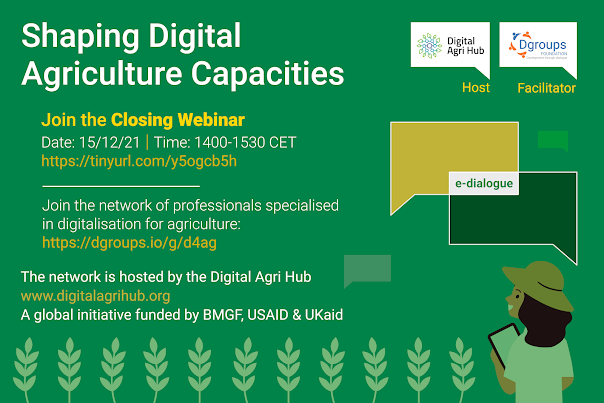And the winner is… Node420, from Jamaica. The team’s ICT application, also called Node420, offers real-time weather analysis and automatic yield forecasts for farmers. The AgriHack Talent Caribbean contest, organised by CTA and partners, came to a close during the 13th Caribbean Week of Agriculture, held this week in Paramaribo, Suriname. The winning teams designed agricultural apps that can forecast crop yields, improve pest management and put farmers in touch with market outlets.
Second prize went to CropGuard, from Barbados, an app that seeks to enhance food security by helping farmers to protect their crops through pest diagnosis, monitoring and control. Third prize was awarded to UNICODE, from Suriname, with an application called Agri-Kari, designed to help farmers manage their land and sell their products.
More than 150 young ICT specialists took part in the AgriHack Talent Caribbean contest run by the Technical Centre for Agricultural and Rural Cooperation (CTA) and partners. The regional championship sought to develop innovative ICT applications that address key Caribbean agricultural challenges and drive agri-enterprise among young people. The ICT applications created by the first three prize-winners will now be developed and incubated, to promote their successful rollout in the region.
The eight regional finalists, drawn from the results of national contests in six Caribbean countries – Barbados, Dominica, Jamaica, St. Kitts and Nevis, Suriname, Trinidad and Tobago – spent the first four days of the
13th Caribbean Week of Agriculture (CWA) fine-tuning their applications before the winners were announced on Thursday October 9. The CWA has been held this week in in Paramaribo, Suriname and ends today (October 10).
All the finalists were given the opportunity to pitch their products to participants attending the CWA, before the regional winners were selected by an international jury.
The contest was based on the idea of a hackathon – a gathering that brings together computer programmers for a short period of time to develop an ICT application or platform that offers solutions for a specific challenge.
Partners in the AgriHack Talent Caribbean contest included the Caribbean Farmers’ Network (
CaFAN), the Caribbean Agricultural Research and Development Institute (
CARDI), the Inter-American Institute for Cooperation on Agriculture (
IICA), Connectimass, Suriname telecom operator
Telesur, the
Caribbean Open Institute and eight ICT innovation hubs.
“ICTs can strongly enhance family farming and the AgriHack Talent Caribbean initiative is supporting ICT innovations and entrepreneurship by youth in the Caribbean,” said CTA Director Michael Hailu. “There is an undisputed need to engage youth in agriculture. Encouraging young ICT innovators to develop services for agriculture contributes to this. It also contributes to improving the image of agriculture and offers opportunities to modernise the sector.”
A key ingredient in the mix has involved bringing together a broad range of expertise from the ICT, agriculture and business sectors, to help take products to the next level. In the run up to the regional finals, the ICT team members received technical support to develop their applications, as well as advice on how to draw up a business model, how to approach investors and how to pitch their idea to the judges and audience.
During the next six months, incubation and mentoring will be offered to the winning teams, who will be given technical and business support, including contact with potential investors and opportunities to promote their applications.
“This contest is about helping young people to sustain agriculture, developing exciting ICT applications that target key agricultural challenges in the Caribbean,” said Ken Lohento, ICT Programme Coordinator for CTA. “The agricultural sector offers substantial opportunities for young people, including those who can offer ICT services to support it. We hope that the AgriHack championship will also result in young people having more livelihood opportunities.”
Winning Jamaican team Node420 said its product sought to provide solutions for some of the most challenging difficulties faced by farmers. “Collecting the information they need can be a real problem for farmers, so we decided to design some hardware that could gather all sorts of data to help them with their cultivation, including planting, sowing and harvesting,” said Jason Scott, who was at the prize-giving with colleague Orane Edwards to collect first prize on behalf of the Node420 team from Jamaica.
The other two team members were: Simantha Hong and Jonathon Cooper. The young ICT developers, who won €5,000 euros plus six months of incubation, are supported by Jamaican ICT Hub SlashRoots, which won €3,000.
“Think of it as a very compact weather station,” said Scott. “It helps farmers to increase their yields, and to forecast how much they might be able to produce.”

.png)



